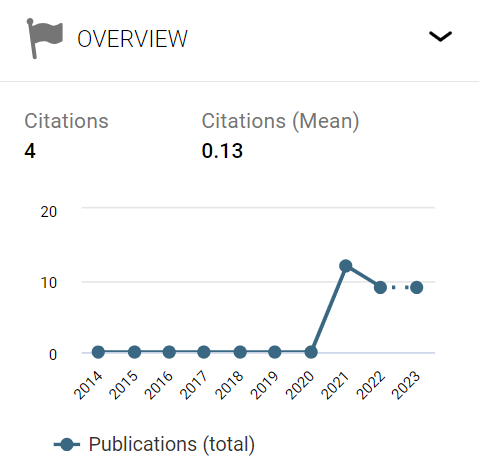Pengaruh Penggunaan Model Belajar Kooperatif Tipe STAD (Student Teams Achievement Division) Terhadap Hasil Belajar Pendidikan Agama Kristen Pada Siswa Kelas IV SDN No. 233 Inpres Botang
DOI:
https://doi.org/10.52849/apokalupsis.v13i1.45Keywords:
Learning Outcomes; Cooperative Learning; STAD.Abstract
Abstract
This research was conducted to obtain a description of how the learning process of Christian Religious Education by using cooperative learning models to improve student learning outcomes in Christian Religious Education class IV SDN No. 233 Botang Presidential Instruction. This study uses quantitative research, with a quasi-experimental research product design with pre-test and post-test control group design. The population in this study were all fourth grade students at SDN No. 233 Inpres Botang for the academic year 2021/2022 with a total of 35 students, while the research sample is the total population. Activities are carried out by providing action or control to the sample. However, before giving the action, first a pre-test was carried out, then after the action was given, a post-test was given to find out whether there was an effect before and after the action was given. Data collection techniques were carried out using observation techniques, tests using questionnaires and documentation. From the research conducted, it was found that the use of the STAD type cooperative learning model significantly improved student learning outcomes, it was seen from the results of data analysis in SPSS, which showed the value of Sig. (2-tailed) of 0.001 < 0.05. Another thing that also shows is the difference or difference in the average value between the pre-test and post-test, or 60.86 – 90.29 = -29.429
References
Deni. “Upaya Meningkatkan Perhatian Belajar, Tema: Berbagai Pekerjaan Melalui Model Kooperatif Learning Kelas IV SD N Bungurendah Bandung Barat Semester 1.” Kementerian Riset, Teknologi dan Pendidikan Tinggi: Universitas Pendidikan Indonesia: Proposal Tindakan Kelas (2020).
Isjoni. Cooperative Learning: Mengembangkan Kemampuan Belajar Berkelompok. Bandung: Alfabeta, 2015.
Isjoni, H., and Arif Ismail. Model-Model Pembelajaran Mutakhir. Pustaka Belajar. Yogyakarta, 2008.
NN. “Meningkatkan Keaktifan Dan Prestasi Belajar Siswa Melalui Model Pembelajaraan Kooperatif Tipe STAD (Stundents Teams Achievement Division) Pada Pokok Bahasan Himpunan Kelas VIIB SMPN 2 Srandakan Bantul Yogyakarta” 2, no. 1 (2018): 1–25.
Prasojo, Waluyo Adi, Deni Mudian, Iyan Nurdiyan Haris, and PJKR FKIP Universitas Subang. “Pengaruh Model Pembelajaran Inkuiri Terhadap Peningkatan Rasa Percaya Diri Siswa Kelas XI Dalam Mata Pelajaran Pendidikan Jasmani Olahraga Dan Kesehatan Di SMK Negeri 2 Subang.” BIORMATIKA: Jurnal Ilmiah FKIP Universitas Subang 4 (2018): 81–88.
Raharjo, Sahid. “Uji Chi Square Dengan SPSS Serta Interpretasi Lengkap.” SPSS Indonesia. Accessed January 28, 2022. https://www.spssindonesia.com/2015/01/uji-chi-square-dengan-spss-lengkap.html?m=1.
Rusman. Model-Model Pembelajaran: Mengembangkan Profesionalisme Guru. Jakarta: Raja Grafindo Persada, 2012.
Sani, Ridwan Abdullah, Wendhie Prayitno, and Hodrani. Panduan Praktis Penelitian Tindakan Kelas. Edited by Pipih Latifah. Cetakan Pe. Bandung: PT Remaja Rosdakarya, 2020.
Slameto. Belajar Dan Hal-Hal Yang Mempengaruhi. Jakarta: Bhineka Cipta, 2010.
Sugiyanto, H. Model-Model Pembelajaran Inovatif. Surakarta: Yuma Pustaka, 2009.
Sugiyono, Prof. Dr. Metode Penelitian Kuantitatif Kualitatif an R&D. Edited by MT Dr. Ir. Sutopo, S.Pd. Kedua. Yogyakarta, 2018.
Downloads
Published
How to Cite
Issue
Section
License

This work is licensed under a Creative Commons Attribution-ShareAlike 4.0 International License.









